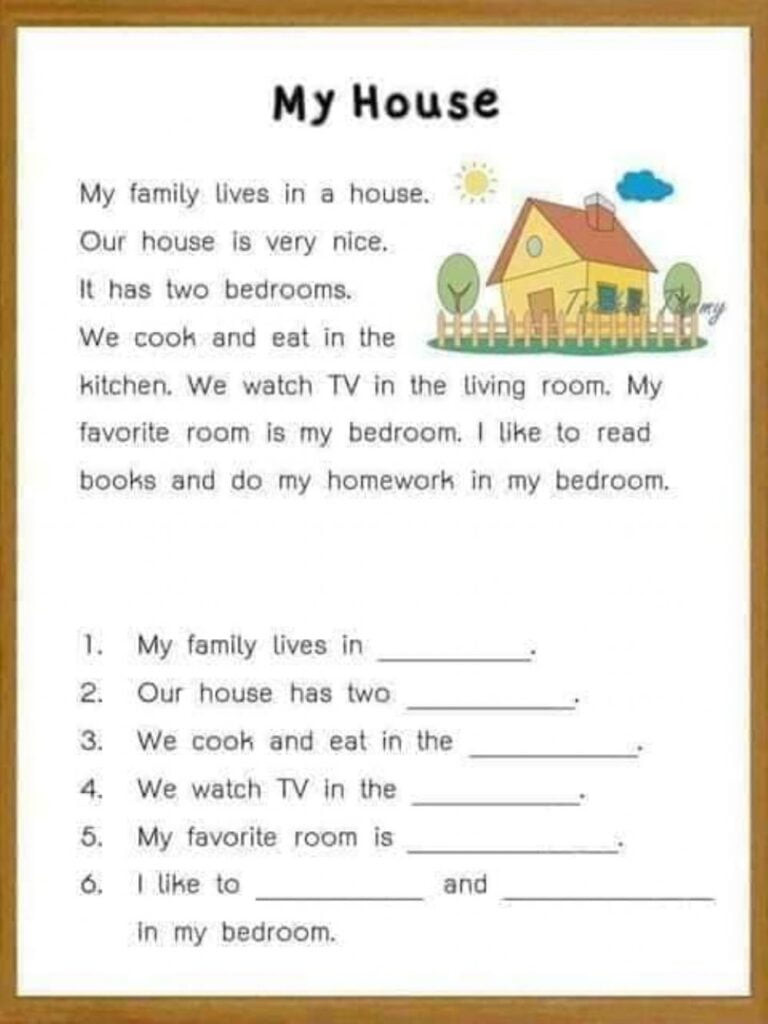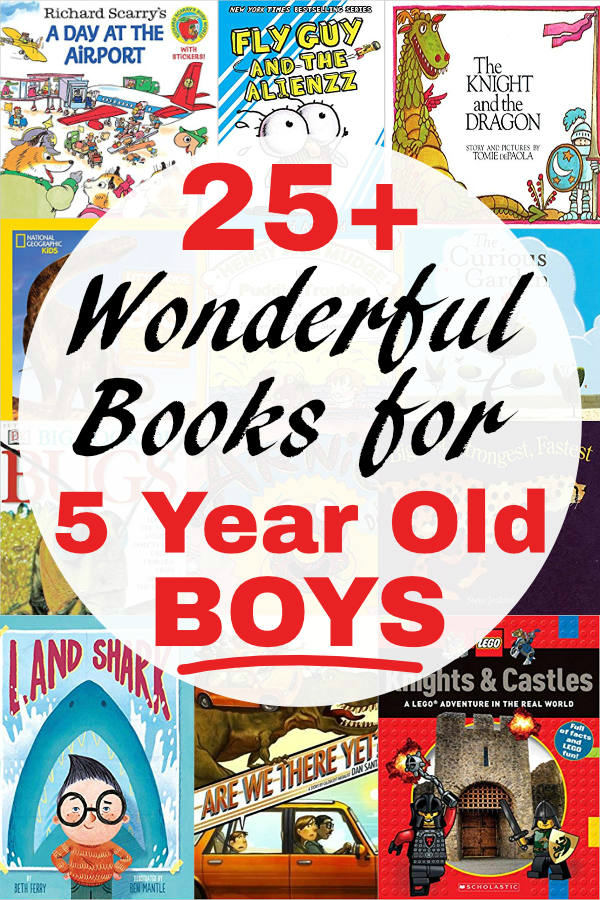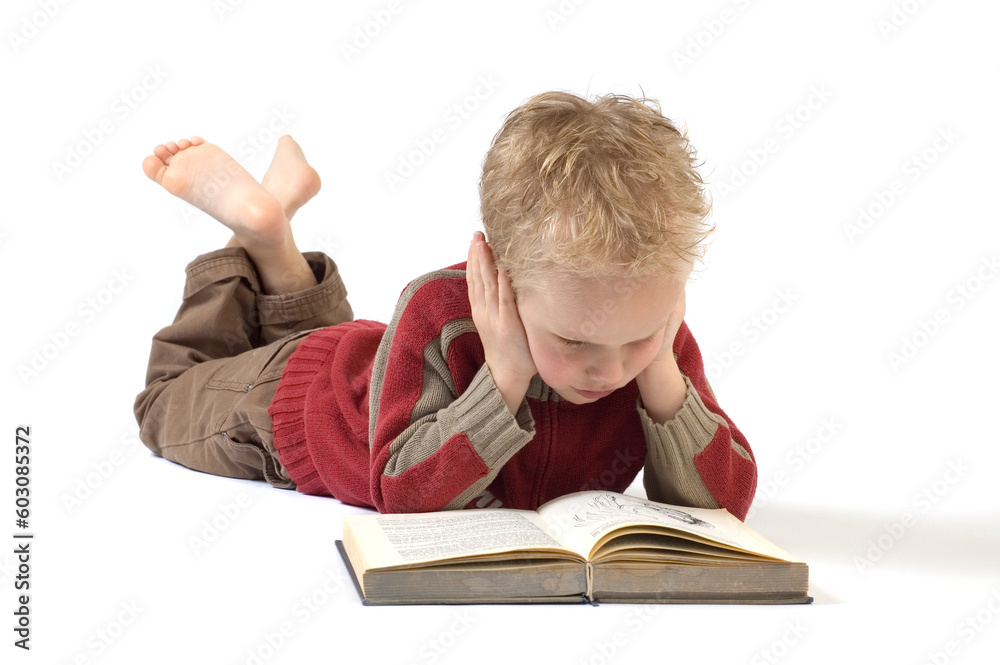Fun Tips About Can A 5 Year Old Read Well

Is Your Little One a Budding Bookworm? Exploring Reading Skills in 5-Year-Olds
1. Understanding Early Literacy Development
Picture this: You're snuggled on the couch with your five-year-old, a colorful picture book open between you. They're pointing at words, maybe even sounding some out. It's a heartwarming scene, right? But it also makes you wonder, "Can a 5 year old read well?" Well, the short answer is... it depends! Every child develops at their own pace, like tiny, determined turtles on a literacy racetrack. Some zoom ahead, while others prefer a more leisurely stroll. The key is understanding what's considered "typical" and how to nurture their individual journey.
Typically, a five-year-old is expected to recognize many letters, especially those in their own name. They might be able to sound out simple words like "cat," "dog," and "sun." They're likely developing phonemic awareness, which is the ability to hear and manipulate the individual sounds within words. Think rhyming games and silly sound effects! These are all building blocks for more advanced reading skills.
Don't get hung up on comparisons with other kids. One five-year-old might be devouring chapter books, while another is still mastering the alphabet. Both are perfectly normal! The most important thing is to create a positive and encouraging environment where they can explore the world of reading without pressure. Think of it as planting seeds in fertile ground; with patience and care, they'll blossom in their own time.
So, instead of worrying about whether your child "can read well" according to some arbitrary standard, focus on fostering a love of reading. Make it fun, make it engaging, and celebrate every milestone, no matter how small. That's the real secret to unlocking their literacy potential. After all, the goal isn't just to decode words, but to understand and enjoy the stories they tell.

Decoding the Code
2. Beyond Sounding Out Words
Okay, so we've established that "reading well" is a pretty subjective term, especially when we're talking about five-year-olds. But what does it mean to be a proficient reader at this age? It's not just about being able to sound out words on a page; it's about comprehension, engagement, and developing a genuine love for stories. Think of it as building a house; sounding out words is just laying the bricks. You need mortar (understanding), a blueprint (context), and a cozy interior (enjoyment) to make it a home.
A five-year-old who "reads well" often demonstrates the ability to understand what they're reading. They can answer simple questions about the plot, identify the main characters, and even make predictions about what might happen next. They're not just mechanically reciting words; they're actively engaging with the text and making connections to their own experiences.
Another key indicator is fluency. Can they read at a comfortable pace, without stumbling over every word? Do they use appropriate expression and intonation? This doesn't mean they need to sound like a professional narrator, but they should be able to convey the meaning and emotion of the text through their reading. Think of it as singing a song; you want to get the melody right, but you also want to put your own heart and soul into it.
Ultimately, "reading well" at five is about laying a strong foundation for future literacy success. It's about fostering a lifelong love of reading and empowering children to explore the world through books. So, celebrate their progress, encourage their curiosity, and remember that the journey is just as important as the destination. And if they occasionally call a giraffe a "gir-aff-i-fee," well, that's just part of the fun!

Nurturing the Bud
3. Making Reading Fun and Engaging
So, how do you help your little one develop those all-important reading skills? The good news is, it doesn't require expensive programs or hours of drilling. The best approach is often the simplest: make reading fun, engaging, and a natural part of your everyday life. Think of it as planting a garden; you need to provide the right environment, water regularly, and let the sunshine in.
One of the most effective strategies is to read aloud to your child regularly. Choose books with captivating stories, colorful illustrations, and interesting characters. Use different voices, make silly sound effects, and get into the spirit of the story. This not only exposes them to new vocabulary and sentence structures, but also creates positive associations with reading.
Another great idea is to create a dedicated reading space in your home. It could be a cozy corner in their bedroom, a comfy armchair in the living room, or even a blanket fort in the backyard. Fill it with books, pillows, and other inviting elements that make it a place they want to spend time. Think of it as creating a sanctuary for their imagination.
Don't underestimate the power of everyday reading opportunities. Point out signs, labels, and menus when you're out and about. Ask them to help you read recipes while you're cooking. Encourage them to read the instructions for their favorite games. These small moments can add up to big gains in their literacy skills. And remember, the most important thing is to make it enjoyable for both of you. After all, reading should be a pleasure, not a chore.

5 Year Old Reading A Book, Isolated On White. Book Is An Children's
When to Seek Help
4. Identifying and Supporting Struggling Readers
While most children develop reading skills at their own pace, it's important to be aware of potential challenges that might require additional support. If you notice that your child is consistently struggling with reading, even after you've tried various strategies at home, it might be time to seek professional help. Think of it as listening to your gut; if something doesn't feel right, it's always best to err on the side of caution.
Some common signs of reading difficulties include trouble recognizing letters and sounds, difficulty sounding out words, slow and choppy reading, poor comprehension, and a general lack of interest in reading. It's important to remember that these are just potential indicators, and not every child who exhibits these signs has a reading problem. However, if you have concerns, it's always best to consult with their teacher, pediatrician, or a reading specialist.
Early intervention is key when it comes to addressing reading challenges. The sooner a problem is identified and addressed, the better the chances of success. A reading specialist can assess your child's skills, identify any underlying issues, and develop a personalized intervention plan. This might include targeted instruction in phonics, phonemic awareness, fluency, or comprehension.
Remember, seeking help is not a sign of failure. It's a sign that you care about your child's well-being and want to give them the best possible chance to succeed. With the right support and encouragement, even the most struggling readers can make significant progress. And who knows, they might even discover a hidden love for reading along the way.

Phonics For 5 Year Olds Free
Beyond the Books
5. Making Learning a Joyful Adventure
Literacy isn't just about reading and writing; it's about communication, creativity, and critical thinking. And it doesn't have to be confined to books and worksheets. There are countless ways to expand your child's literacy skills through play, exploration, and everyday experiences. Think of it as turning the world into a giant, interactive classroom.
One great way to boost literacy is through storytelling. Encourage your child to make up their own stories, act out familiar tales, or create puppet shows. This helps them develop their imagination, vocabulary, and narrative skills. You can even write down their stories and illustrate them together, creating a personalized book that they can be proud of.
Another fun activity is to play word games. Rhyming games, alphabet games, and silly sound games can all help develop phonemic awareness and vocabulary. You can even create your own games using flashcards, dice, or just your imagination. The key is to make it fun and engaging, so they don't even realize they're learning.
Don't forget the power of real-world experiences. Take your child to the library, the museum, the zoo, or the park. Talk about what you see, read signs and labels together, and encourage them to ask questions. These experiences provide valuable context for learning and help them make connections between books and the world around them. Ultimately, literacy is about empowering children to become lifelong learners and engaged citizens. So, let's make learning a joyful adventure!

Pin On Educative Printable
FAQ
6. Addressing Your Concerns About Your Child's Reading Development
Here are some frequently asked questions (FAQs) about reading milestones in young children, designed to address common concerns and provide helpful information:
7. Q
A: Absolutely! Every child develops at their own pace. While some five-year-olds might be starting to read simple words, others are still focusing on pre-reading skills like letter recognition and phonemic awareness. The most important thing is to create a supportive and encouraging environment where they can explore literacy at their own speed. Focus on fostering a love of books and reading aloud together, rather than stressing about achieving specific milestones.
8. Q
A: Phonics can be tricky! Try incorporating fun, hands-on activities that focus on letter sounds. Use magnetic letters, flashcards, or online games to make it engaging. Break down words into smaller chunks and practice sounding them out together. If you're still concerned, talk to your child's teacher or a reading specialist for additional support and guidance. They can provide personalized strategies and resources to help your child succeed.
9. Q
A: There are so many wonderful books for five-year-olds! Look for books with colorful illustrations, engaging stories, and relatable characters. Books that focus on phonics, rhyming, and early reading skills are also great choices. Some popular titles include "The Very Hungry Caterpillar," "Brown Bear, Brown Bear, What Do You See?" and "Click, Clack, Moo: Cows That Type." Visit your local library or bookstore for more recommendations and let your child help choose books that interest them.